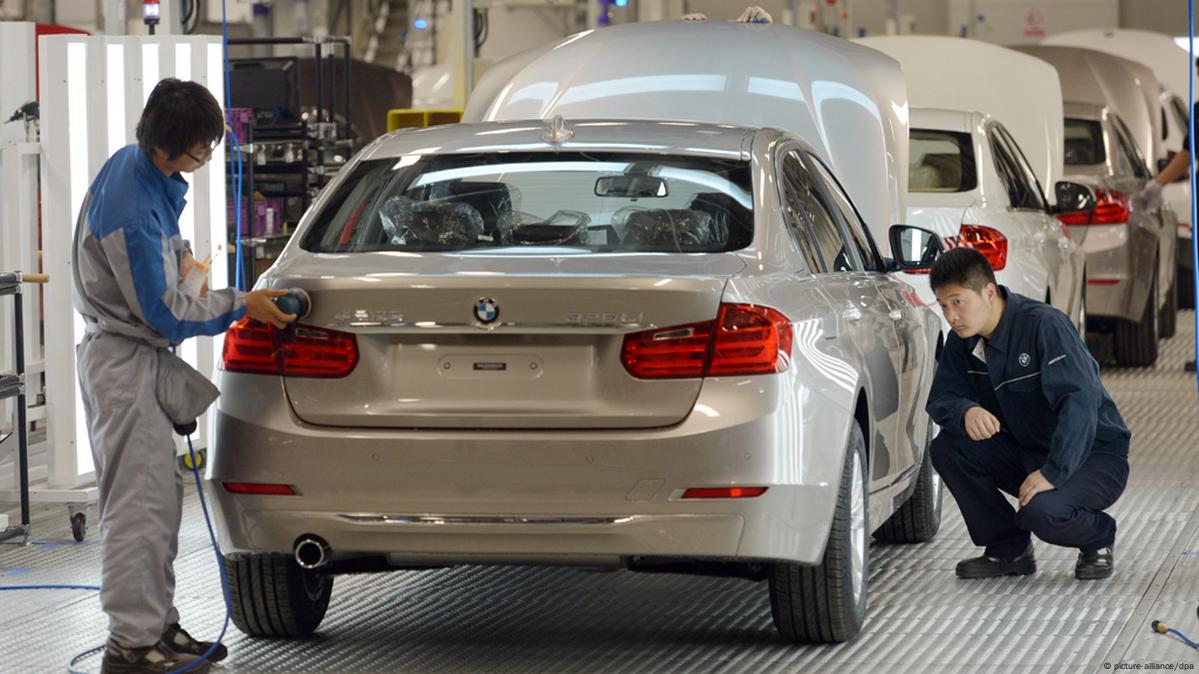Are BMW And Porsche Losing Ground In China? Analyzing The Market Headwinds

Table of Contents
Rising Competition from Domestic Brands
The Chinese automotive market is experiencing a dramatic reshaping, largely driven by the rise of domestic brands. This competition manifests in two key areas: the explosive growth of electric vehicles (EVs) and the significant improvement in quality and branding of traditional Chinese automakers.
The Rise of Chinese Electric Vehicles (EVs)
The Chinese EV sector is booming, fueled by substantial government investment and rapid technological innovation. This surge is significantly impacting the BMW and Porsche China market share because:
- Increased Investment and Innovation: Massive investment in R&D has led to impressive advancements in battery technology, charging infrastructure, and autonomous driving capabilities.
- Growing Preference for Domestic Brands: Younger Chinese consumers, particularly tech-savvy millennials and Gen Z, are increasingly favoring domestic EV brands, drawn to their innovative features and competitive pricing.
- Successful Chinese EV Brands: Brands like NIO, XPeng, and BYD are not only gaining traction domestically but also making inroads internationally. Their competitive pricing and advanced technology directly challenge established luxury players like BMW and Porsche.
- Government Incentives: Government subsidies and tax breaks for EVs further incentivize consumers to choose domestic brands, further impacting the BMW and Porsche China market share.
Improved Quality and Branding of Domestic Brands
Chinese automakers are no longer viewed as producing inferior vehicles. Significant improvements in design, technology, and build quality are evident, alongside sophisticated marketing campaigns carefully tailored to Chinese consumer preferences. This has led to:
- Enhanced Design and Technology: Chinese brands are now producing vehicles with sleek designs, advanced infotainment systems, and impressive technological features that rival, and sometimes surpass, their foreign counterparts.
- Targeted Marketing: Marketing strategies effectively communicate the improved quality and value proposition of domestic brands, resonating with Chinese consumers.
- Shifting Perceptions: The perception of Chinese brands has fundamentally shifted. They are no longer automatically seen as inferior; instead, they are increasingly viewed as comparable or even superior in certain segments, directly influencing the BMW and Porsche China market share.
Economic Slowdown and Shifting Consumer Preferences
Beyond the rise of domestic competition, broader economic trends and evolving consumer preferences are also affecting the BMW and Porsche China market share.
Economic Uncertainty and Reduced Consumer Spending
China's economic slowdown is impacting consumer spending, particularly on luxury goods. This translates to:
- Reduced Luxury Goods Purchases: Consumers are becoming more cautious with their discretionary spending, leading to a decrease in demand for luxury vehicles.
- Decreased Consumer Confidence: Economic uncertainty directly impacts consumer confidence, affecting their willingness to make large purchases like high-end cars.
- Decline in Luxury Car Sales: Statistical data clearly shows a decline in luxury car sales in China, reflecting the impact of the economic slowdown on the BMW and Porsche China market share.
Evolving Consumer Tastes and Brand Loyalty
Consumer preferences are dynamic. This includes a shift towards more technologically advanced and fuel-efficient vehicles, as well as changing vehicle preferences:
- Technological Advancements: Chinese consumers increasingly prioritize technological features, favoring vehicles with advanced driver-assistance systems, connectivity, and electrification.
- Growing Appeal of SUVs and Crossovers: SUVs and crossovers are experiencing strong growth in popularity, impacting the demand for traditional sedan models favored by BMW and Porsche.
- Erosion of Brand Loyalty: The traditional brand loyalty seen in previous years is weakening, as consumers become more open to exploring alternative brands offering competitive features and value.
Supply Chain Disruptions and Geopolitical Factors
External factors, such as supply chain disruptions and geopolitical tensions, further complicate the situation for BMW and Porsche in China.
Impact of Global Supply Chain Issues
Global supply chain bottlenecks are creating challenges for vehicle production:
- Parts and Component Shortages: Securing necessary parts and components for vehicle production is becoming increasingly difficult, impacting production volumes.
- Increased Manufacturing Costs: Supply chain disruptions have driven up manufacturing costs, impacting pricing strategies and profitability.
- Delivery Delays: Delays in vehicle deliveries affect customer satisfaction and can damage brand reputation.
Geopolitical Tensions and Trade Relations
Geopolitical uncertainty and potential trade disputes can significantly influence the Chinese market:
- Trade Disputes and Uncertainty: Trade disputes and geopolitical tensions create uncertainty, impacting investment decisions and market confidence.
- Regulatory Environment: The regulatory environment in China is constantly evolving, influencing the operating conditions for foreign car manufacturers.
- Tariffs and Import Restrictions: Potential tariffs and import restrictions could increase the cost of importing vehicles into China, making them less competitive.
Conclusion
This analysis reveals significant challenges impacting the BMW and Porsche China market share. The rise of competitive domestic brands, economic headwinds, and global uncertainties are all contributing factors to potential market share losses. These brands need to adapt swiftly, focusing on innovation, localized strategies, tailored to Chinese preferences, and a deep understanding of the evolving Chinese automotive market.
Call to Action: To stay informed on the evolving dynamics of the BMW and Porsche China market share and the future of luxury car sales in China, continue to follow our analysis and insights on the automotive industry. Understanding the changing landscape of the BMW and Porsche China market share is crucial for investors, automotive enthusiasts, and anyone interested in the future of the global automotive industry.

Featured Posts
-
 Hmrc Refund Check Millions May Have Missed Out
May 20, 2025
Hmrc Refund Check Millions May Have Missed Out
May 20, 2025 -
 Sahrana Glumice Andelke Milivojevic Tadic Detalji Sa Poslednjeg Ispracaja
May 20, 2025
Sahrana Glumice Andelke Milivojevic Tadic Detalji Sa Poslednjeg Ispracaja
May 20, 2025 -
 Rising Sea Levels Falling Credit Scores The Homebuyers Climate Risk
May 20, 2025
Rising Sea Levels Falling Credit Scores The Homebuyers Climate Risk
May 20, 2025 -
 Solo Travel The Rise Of Independent Adventures
May 20, 2025
Solo Travel The Rise Of Independent Adventures
May 20, 2025 -
 How Agatha Christie Inspired Shyamalans The Village
May 20, 2025
How Agatha Christie Inspired Shyamalans The Village
May 20, 2025
Latest Posts
-
 Wayne Gretzkys Fast Facts A Quick Look At The Great Ones Life And Career
May 20, 2025
Wayne Gretzkys Fast Facts A Quick Look At The Great Ones Life And Career
May 20, 2025 -
 The Impact Of Trumps Policies On Canadian Hockey Icon Wayne Gretzky A Loyalty Debate
May 20, 2025
The Impact Of Trumps Policies On Canadian Hockey Icon Wayne Gretzky A Loyalty Debate
May 20, 2025 -
 The Hottest Paulina Gretzky Pictures You Ll Ever See
May 20, 2025
The Hottest Paulina Gretzky Pictures You Ll Ever See
May 20, 2025 -
 Paulina Gretzkys Sophisticated Soprano Look New Photos In A Leopard Dress
May 20, 2025
Paulina Gretzkys Sophisticated Soprano Look New Photos In A Leopard Dress
May 20, 2025 -
 Trumps Tariffs And Statehood Comments Ignite Debate Over Wayne Gretzkys Canadian Patriotism
May 20, 2025
Trumps Tariffs And Statehood Comments Ignite Debate Over Wayne Gretzkys Canadian Patriotism
May 20, 2025
